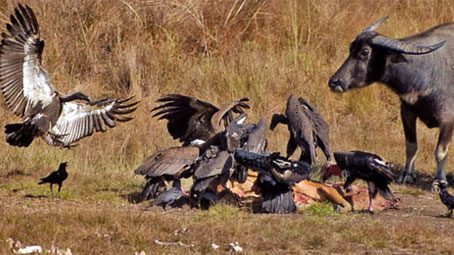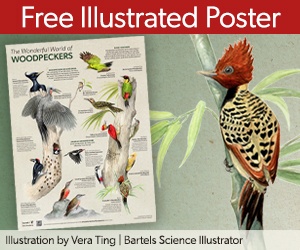Science in the News: Invigorating or Exasperating?
By Hugh Powell June 26, 2008
Did you know that Asian vulture populations have fallen by more than 97 percent since 1992? Three species may be extinct within a decade, all due to an unanticipated side-effect of a veterinary drug used on cattle.
Or that the songs of successful Black-throated Blue Warblers can sway the judgment of others searching for a place to settle down?
You may have heard that as our climate warms, some birds are changing their migration schedules. But did you know that long-distance migrants, such as Great Crested Flycatchers returning from South America, seem less able to judge Spring’s new schedule – meaning they may arrive too late to their breeding grounds?
Then there’s last week’s creepiest science result, involving the Nazca Booby (a seabird related to the Northern Gannet)? Newly hatched chicks usually kill their booby siblings in a flurry of biting and shoving as soon as they hatch. Now, scientists have pinned this aggression on high levels of androgens – a type of hormone – that are three times as high in Nazca boobies as in another, more peaceful booby species.
That’s a very brief roundup of scientific findings from the last couple of weeks. This sort of science – covering pretty much any bird species you can name and nearly any aspect of its lifestyle – is going on around the clock and around the globe.
And I love it. I always look forward to the next fascinating story about how the world works, uncovered by some grimy academic after a decade spent in some remote, green corner of the world.
But then, I’m a science writer. What about you? Does science pique your curiosity? Would you read science news if it were collected here at the Lab? When you read about a bird on All About Birds, would you be interested in tidbits about recent research on the species? Or do your eyes tend to skip over words like “androgen” altogether?
I love to read and write about science. But the most important part of writing is the reader. So just how much science do you want on your Lab of Ornithology home page?

All About Birds
is a free resource
Available for everyone,
funded by donors like you
American Kestrel by Blair Dudeck / Macaulay Library
